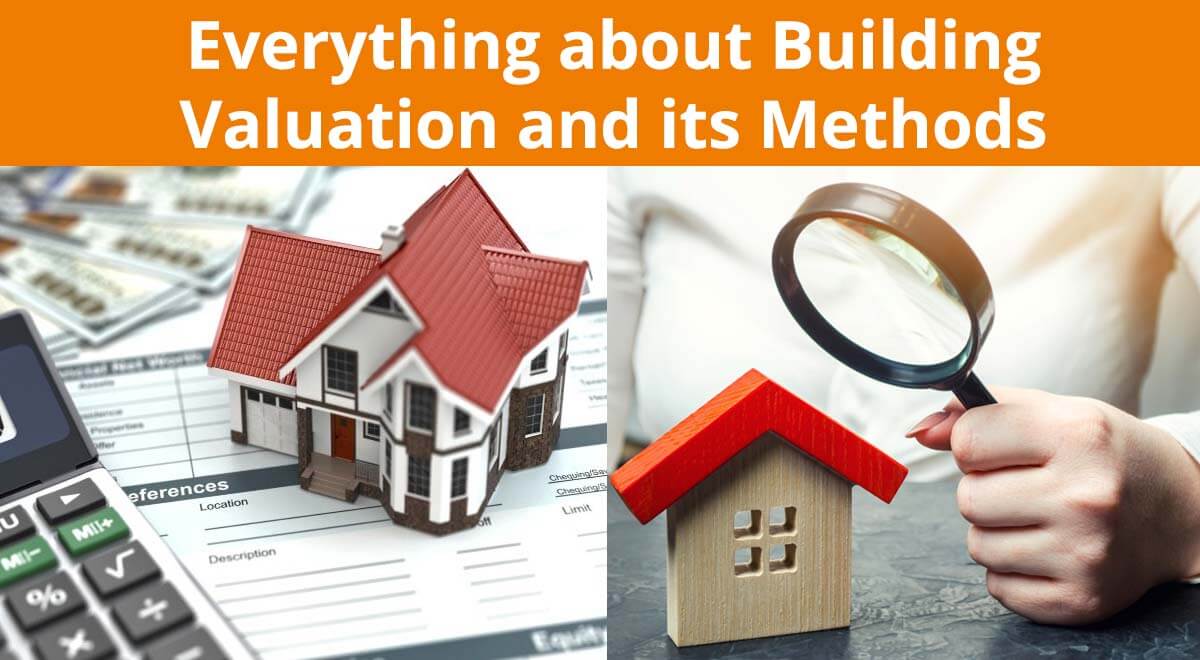Everything about Building Valuation and its Methods
TweetIntroduction
Everyone in this world is valuable. Every materialistic object has a unique worth in a similar way. The term "value" describes the value or price of anything.
Building valuation is the process used to determine a building's current monetary value or worth. Knowing the precise worth of the item you are buying is crucial before selling or purchasing a building or any other item. The same is true for structures. A building's present value should be calculated before a structure is purchased or sold.
What do you mean by building valuation?
When you sell or buy a house or building, a building valuation prevents you from suffering a heavy loss. There is a lot of labour and money involved in making a house. In other words, when you lose money when selling a house, you also lose precious time. With the process of building valuation, you avoid these mistakes and save both time and money.
The value and cost of buildings built on freehold lands are typically higher than those built on leasehold lands.
An important factor affecting the value of a building is its age. It is true that the value of a house depreciates with age. Age has a great impact on the value or worth of a building. It is therefore essential to know the age of the building when evaluating its price or, in another word, when evaluating the building itself.
There are a number of other factors that need to be taken into account when working out the present costs of a building. A thorough examination of the house's records should be conducted before an estimate of its value can be made. As you evaluate the price of a building, you should pay attention to the bills and expenses that are associated with it.
Depreciation
Depreciation also plays a prominent role in determining the value of a building; therefore, it is important not to ignore this factor when calculating the value. Every year, the value of a building depreciates by a certain amount. Every year, houses depreciate at a certain rate due to the wear and tear they sustain. The rate at which depreciation occurs is called the depreciation rate.
The rate of depreciation varies from region to region as well as with the age of the building. An old building with a depreciation value of .5% a year, for instance, depreciates at the rate of .5% per year.
Depreciation increases to 0.75% per year if the house is older than 10 years. Depending on the region, this value may vary.
Valuation of buildings for various purposes
Building valuation is carried out for the following purposes in this case:-
Building purchases and sales:Regardless of whether you are buying or selling a building, knowing its value is critical. The procedure should not be pursued without a proper evaluation of the building, and it is possible for heavy losses to result from this. It is important to note that when someone purchases a building, they put their hard-earned money at risk, it is therefore depressing to suffer a loss. Therefore, it is necessary to conduct an evaluation of the building before it is sold or purchased. It is recommended that a professional appraise the building.
The taxation :
By valuing the structure, it is possible to determine how much tax must be paid on a home or other structure. Every year, we must pay a number of taxes. Everything is taxed at a certain base rate. Municipal taxes, property taxes, and health taxes are all determined by the building's worth. The taxes on structures with various monetary values will also vary. Therefore, a valuation-based assessment is used to determine the exact amount of property tax or other taxes that must be paid.
Estimation of the rent payable -
Knowing if the monthly rent you pay to reside in the building is reasonable or not is important if you rent your home. Many people pay their rent without understanding the worth of the home they live in, incurring a significant loss. Additionally, if you plan to rent out your building, you must know its worth in order to calculate the monthly rent that will be due. A fixed portion of the building's overall worth should be the rent. The annual rent is typically between 10% and 6% of the building's current market value.
Acquisitions required by lawThe government has acquitted many properties and buildings in the past. The motivation for an acquisition can be influenced by a number of factors. It is used for running a variety of projects, building roads, generating power, building rail lines, etc. There is an acquittal of properties. The property owner is compensated in such cases. Compensation is to be paid to the owner when acquiring a building. In this competition, the amount to be paid should be determined by the property's value. In order to acquire a building, it's necessary to know its value.
Salvage Value:
It is important to understand that a salvage value is an estimate of the value of an old or unusable property. When calculating the price of a piece of property or building that will be depreciated, it is necessary to subtract the salvage value of the property from the purchase price. It can be thought of as the value at which the property can be resold.
Scrap value of a property:
Scrap value is a term used to describe the value of materials that have been disassembled. As soon as the building has reached the end of its lifespan and is dismantled, the price of scraps such as rods, wood, bricks, and the like will be able to produce some money. A scrap value is a term used to describe this amount.

